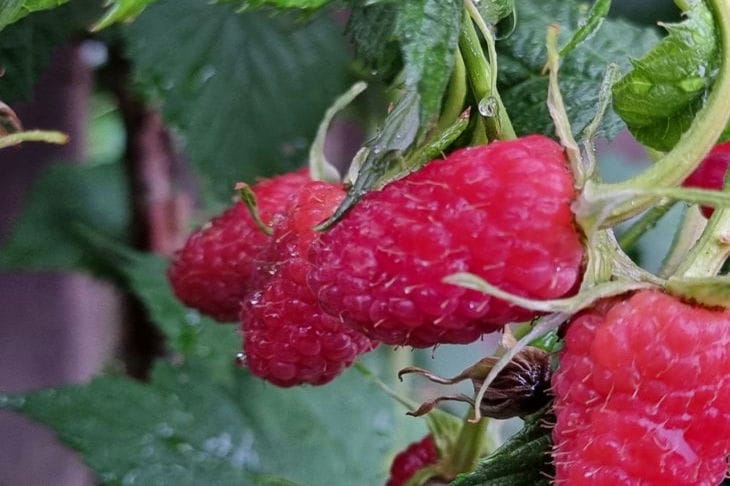Why there are no fruits in remontant raspberries: we reveal the secrets of a rich harvest
Many gardeners dream of remontant raspberries, because they promise a double harvest per season.
However, this dream is often shattered by harsh reality, when instead of the expected abundance of berries, the gardener sees only lush greenery without a hint of fruit.
This situation can disappoint even the most patient gardener. The lack of harvest from remontant raspberries is a problem that both beginners and experienced gardeners face.
The reasons for this phenomenon can be varied, from errors in care to climate and variety characteristics.
Wrong choice of variety
One of the most common reasons for the lack of fruit is the incorrect selection of remontant raspberry variety.

Not all varieties adapt equally well to different climatic conditions.
Some require a longer growing season than a particular region may offer.
As a result, the plant does not have time to form and ripen fruits before the onset of cold weather.
When choosing a variety, it is important to follow the recommendations of local gardeners and nurseries, taking into account the climate characteristics.
Nutrient deficiencies
Everbearing raspberry is a plant that requires rich nutrition.
Lack of essential elements in the soil can lead to lack of fruiting. Phosphorus and potassium are especially important for crop formation.
Their deficiency leads to the plant developing a powerful green mass, but not setting fruit.
Regular fertilizing with complex fertilizers with increased phosphorus and potassium content will help solve this problem.
Incorrect pruning
The technique for pruning remontant raspberries differs from that of regular varieties. Mistakes in this process can significantly reduce the yield or even deprive the gardener of fruits.
Too much spring pruning can remove the current year's fruiting shoots.
On the other hand, the lack of pruning leads to thickening of the bush, which also negatively affects the yield.
Pollination problems
Raspberries need pollination to form fruit. In some cases, the lack of a harvest may be due to a lack of pollinating insects.
This is especially true in rainy weather or when using bee-repellent pesticides.
Attracting pollinators with flowering companion plants or even hand pollination can help solve this problem.
Adverse weather conditions
Weather factors play an important role in the fruiting of remontant raspberries. Too hot and dry a summer can lead to the fall of flowers and ovaries.
On the other hand, excessive humidity and cold weather also have a negative impact on yield. In such conditions, the plant spends all its energy on survival, rather than on the formation of fruits.
Creating an optimal microclimate with mulching and proper watering will help minimize the negative impact of the weather.
Diseases and pests
Various diseases and pests can significantly reduce the yield of remontant raspberries or completely destroy the crop.
Viral diseases such as leaf curl can greatly weaken the plant.
Pests, such as the raspberry beetle, damage flowers and ovaries. Regular preventive treatments and careful inspection of plants will help to identify and eliminate these problems in time.
Planting age
Young remontant raspberry bushes may not produce a harvest or produce very little fruit in the first year after planting.
This is a normal phenomenon, as the plant spends energy on the formation of the root system and the above-ground part.
Full fruiting usually begins in the second or third year after planting. Patience and proper care will allow you to wait for a rich harvest in the future.
